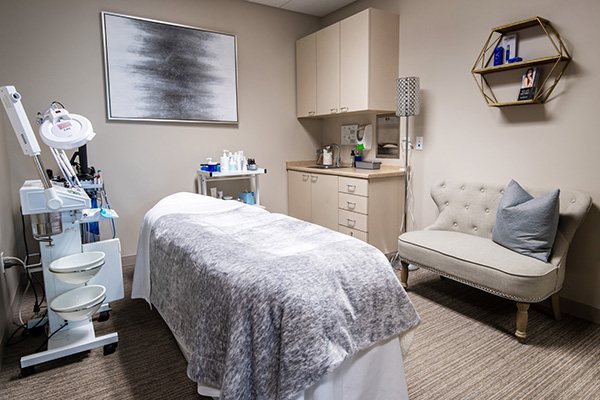
How to Prepare for Your Nose Surgery Procedure: A Step-by-Step Guide
Rhinoplasty, often referred to as a "rhinoplasty," is a popular surgical procedure created to reshape the nose for aesthetic or practical functions. Whether you're thinking about rhinoplasty to improve your look or address breathing problems, preparation is crucial to making sure a smooth experience. This extensive guide will stroll you through each step of preparing for your nose surgery procedure, offering D imaging in rhinoplasty insights and practical pointers essential for success.
Understanding Rhinoplasty Surgery
What Is Rhinoplasty?
Rhinoplasty is a surgery that modifies the structure of the nose. It can include altering the size, shape, or percentages of the nose, along with correcting practical problems such as deviated septum.
Types of Nose surgery Procedures
Benefits of Rhinoplasty
- Improved facial balance
- Enhanced self-esteem
- Better breathing function
Evaluating Your Factors for Surgery
Why Do You Want Rhinoplasty?
It's essential to reflect on your motivations for going through nose job. Are you seeking aesthetic enhancement, or exist functional issues? Comprehending your factors helps set reasonable expectations.
Consulting with a Surgeon
Schedule assessments with board-certified cosmetic surgeon concentrating on nose job. Discuss your goals and ask about their experience and outcomes.
How to Prepare for Your Nose Job Procedure: A Step-by-Step Guide
Step 1: Research study Your Surgeon
Choosing the right cosmetic surgeon can significantly affect your results. Look for:
- Credentials and board certification
- Before-and-after photos of previous patients
- Patient reviews and testimonials
Step 2: Understand the Expenses Involved
Rhinoplasty cost can vary commonly based upon numerous factors:
- Geographic location
- Surgeon's experience
- Complexity of the procedure
|Aspect|Average Cost Price Quote|| --------------------------------|----------------------|| Cosmetic surgeon's Fee|$5,000 - $10,000|| Anesthesia|$600 - $1,200|| Facility Fees|$700 - $4,000|| Overall Estimated Cost|$7,300 - $15,200|
Step 3: Schedule Preoperative Appointments
Your surgeon might advise specific tests or assessments with other professionals (e.g., ENT doctors) prior to surgery.
Preparing Physically and Mentally
Physical Preparation Tips
To make sure optimum recovery after nose job surgery:
- Maintain a healthy diet abundant in vitamins and minerals.
- Stay hydrated before surgery.
- Avoid smoking and alcohol usage-- a couple of weeks leading up to the operation.
Mental Preparation Strategies
Undergoing surgery can be mentally taxing. Think about engaging in relaxation strategies like meditation or yoga to reduce anxiety.
What to Expect Throughout Your Consultation
Discussing Goals and Expectations
Use this time to articulate what you want to attain with nose surgery plainly. Your cosmetic surgeon will provide feedback on what is reasonably achievable based on your facial anatomy.
Reviewing Medical History
Be prepared to disclose any medical conditions and medications you're presently taking-- this guarantees your safety throughout surgery.
Preoperative Guidelines from Your Surgeon
Medication Guidelines
Your surgeon will likely instruct you on which medications to prevent (e.g., aspirin and NSAIDs) that can increase bleeding risks.
Fasting Before Surgery
Typically, you'll be advised not to eat or consume anything after midnight before your surgery day.

Logistics on Surgery Day
Arranging Transportation
Since anesthesia may impair your ability to drive after surgical treatment, arrange transport home ahead of time.
What to Cause Surgical Treatment Day
Consider packaging items like:
- Comfortable clothing
- Any required paperwork
- A book or music device for relaxation
Postoperative Care Essentials
Recovering at Home After Nose Surgery Surgery
Follow these guidelines:
Follow-Up Consultations with Your Surgeon
Regular check-ups are required for keeping an eye on healing development and dealing with any prospective complications.
FAQs About Rhinoplasty
1. What is rhinoplasty healing like?
Recovery can take numerous weeks; anticipate swelling and bruising at first however many people return to regular activities within a number of weeks.
2. Will I have noticeable scars after rhinoplasty?
In open nose surgeries, there might be little scars on the columella; however, they typically fade over time.
3. Can I wear glasses after my procedure?
You should prevent wearing glasses for a minimum of a couple of weeks post-surgery; consult your cosmetic surgeon for customized advice.
4. The length of time do outcomes last?
Results are usually irreversible however may progress slightly in time due to aging or modifications in skin elasticity.
5. Is rhinoplasty safe?
Like all surgical treatments, it carries risks; nevertheless, complications are rare when carried out by qualified surgeons under sterilized conditions.
6. Can I integrate nose surgery with another procedure?
Many patients select combined surgeries (like chin enhancement), however discuss this completely with your surgeon beforehand.
Conclusion
Preparing for a rhinoplasty procedure does not need to be intimidating when approached systematically-- understanding what lies ahead is vital! From choosing an experienced surgeon and handling expenses efficiently to focusing on both physical and psychological preparedness-- each step plays an integral function in ensuring successful results from this transformative surgery. By sticking closely to our comprehensive guide entitled "How to Get ready for Your Rhinoplasty Treatment: A Step-by-Step Guide," you empower yourself with understanding that cultivates self-confidence throughout this journey toward improving both form and function of one's most prominent facial feature-- the nose!